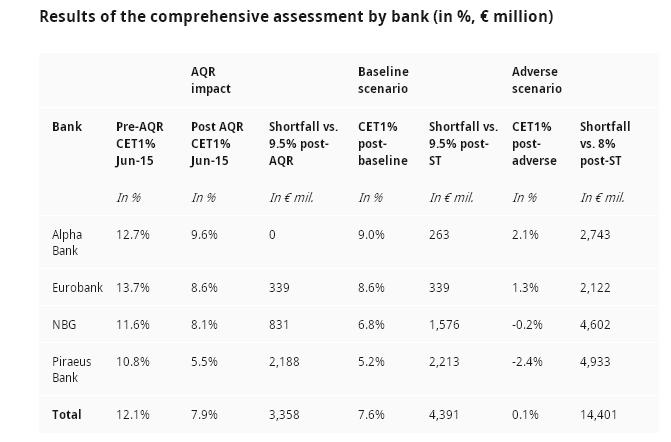Katsimi, Margarita, Zoega, Gylfi, (2015), “The Greek and Icelandic IMF programmes compared”, Voxeu, 19 November. Iceland and Greece were both seriously affected by the Global Crisis, yet their experiences with the implemented IMF programmes have been quite different. In Iceland the programme has been a success, whereas the one in Greece has been a failure. This column explains why this happened. First, Iceland’s external debt was de jure private, while Greece’s …Read More
Pension Poor and Housing rich in Greece? A generational perspective argues for policy entrepreneurship
Tinios, Platon, (2015), “Pension Poor and Housing rich in Greece? A generational perspective argues for policy entrepreneurship”, LSE blog, 12 November The Greek crisis can be framed as an ageing narrative. Greece confronted dilemmas that all ageing societies are bound to face. For example, it was forced in June 2015 to choose between discharging a legal obligation – repaying the IMF– and an ethical obligation – paying pensions; ethics won out. …Read More
A More Ambitious Agenda Needed to Combat Greek Debt
Hyppolite, Paul-Adrien, Roussille, Nina, (2015), “A More Ambitious Agenda Needed to Combat Greek Debt”, Economonitor, 14 November. The July 12th euro area summit ended with a last minute agreement that avoided an imminent ‘Grexit’. Even before negotiating the third bailout program, the Greek government accepted several conditions imposed by its European partners. Among these, the most debated is the creation of a fund to monetize €50bn of public assets through privatizations and other means, …Read More
Alternative measures of government indebtedness
Dias, Daniel A., Wright, Mark L. J., (2015), “Alternative measures of government indebtedness”,Voxeu, 13 November. Measured as a percentage of its GDP, Greece’s debt is higher than that of Portugal and Ireland. This column discusses a range of new techniques for measuring the debts of Greece, Ireland, and Portugal. It argues that plausible alternative measures of indebtedness suggest that Greece is anywhere from as much as 50% more indebted than Portugal and …Read More
Greece as an example of “post-politics” in the eurozone
Chatzistavrou, Filippa, Michalaki, Sofia, (2015), “Greece as an example of “post-politics” in the eurozone”, EPIN Papers, Centre for European Policy Studies (CEPS), Commentary No. 28, 9 November The past six months of negotiations between Greece and the EU/IMF have tested the unity, limits, stamina and financial interdependence of eurozone member states. Greece has emerged wounded from the fray, but Prime Minister Alexis Tsipras has established beyond doubt his dominance in Greek politics, against all odds, …Read More
Prime Ministers in Greece-The Paradox of Power
Featherstone, Kevin, Papadimitriou, Dimitris, (2015), “Prime Ministers in Greece-The Paradox of Power”, Oxford University Press, July This book is concerned with a large question in one small, but highly problematic case: how can a prime minister establish control and coordination across his or her government? The Greek system of government sustains a ‘paradox of power’ at its very core. The Constitution provides the prime minister with extensive and often unchecked powers. Yet, the …Read More
New Countdown For Greece: A Bank Bail-in Is Looming
Minenna, Marcello, (2015), “New Countdown For Greece: A Bank Bail-in Is Looming”, Social Europe, 4 November. The debt crisis may no longer be in the spotlight but the financial situation in Greece remains complex. Greek banks continue to survive at the edge of bankruptcy, kept afloat only by Emergency Liquidity Assistance (ELA) from the ECB and by still-enforced capital controls. After the August “agreement”, the Troika has promised the Greek government €25 billion …Read More
Results of the Greek comprehensive assessment 2015
What should be done with Greek banks to help the country return to a path of growth
Avgouleas, Emilios, Papadimitriou, Dimitri B., (2015), “What should be done with Greek banks to help the country return to a path of growth”, Levy Economics Institute of Bard College, 2015/6, October The battered Greek banks will soon face another round of recapitalization, yet the prospects for a return to their precrisis role as liquidity providers to the economy are unlikely. In this context, it is imperative to remind the country’s creditors and the officials …Read More
The Pitfalls of External Dependence: Greece, 1829-2015
Reinhart M., Carmen, Trebesch, Christoph, (2015), “The pitfalls of external dependence: Greece, 1829-2015”, Brookings Papers on Economic Activity, September. Two centuries of Greek debt crises highlight the pitfalls of relying on external financing. Since its independence in 1829, the Greek government has defaulted four times on its external creditors, and it was bailed out in each crisis. We show that cycles of external crises and dependence are a perennial theme of …Read More





